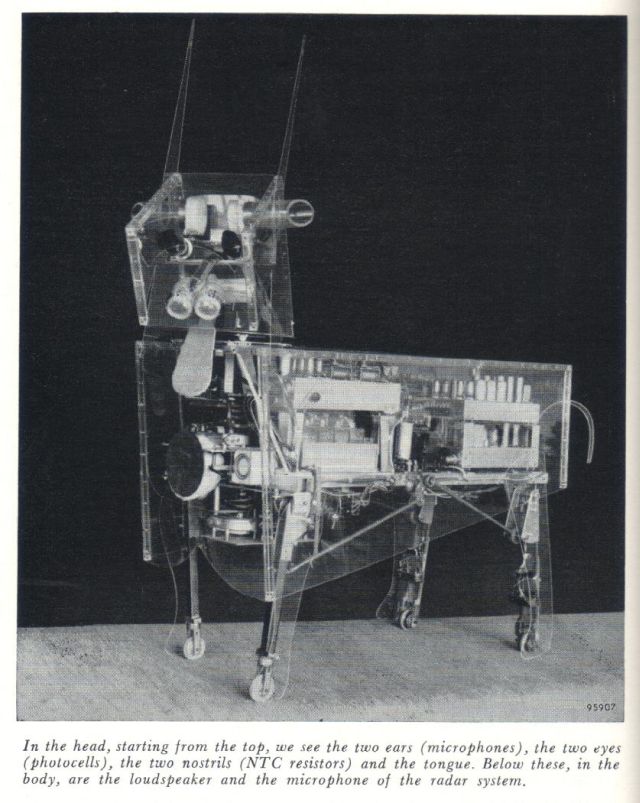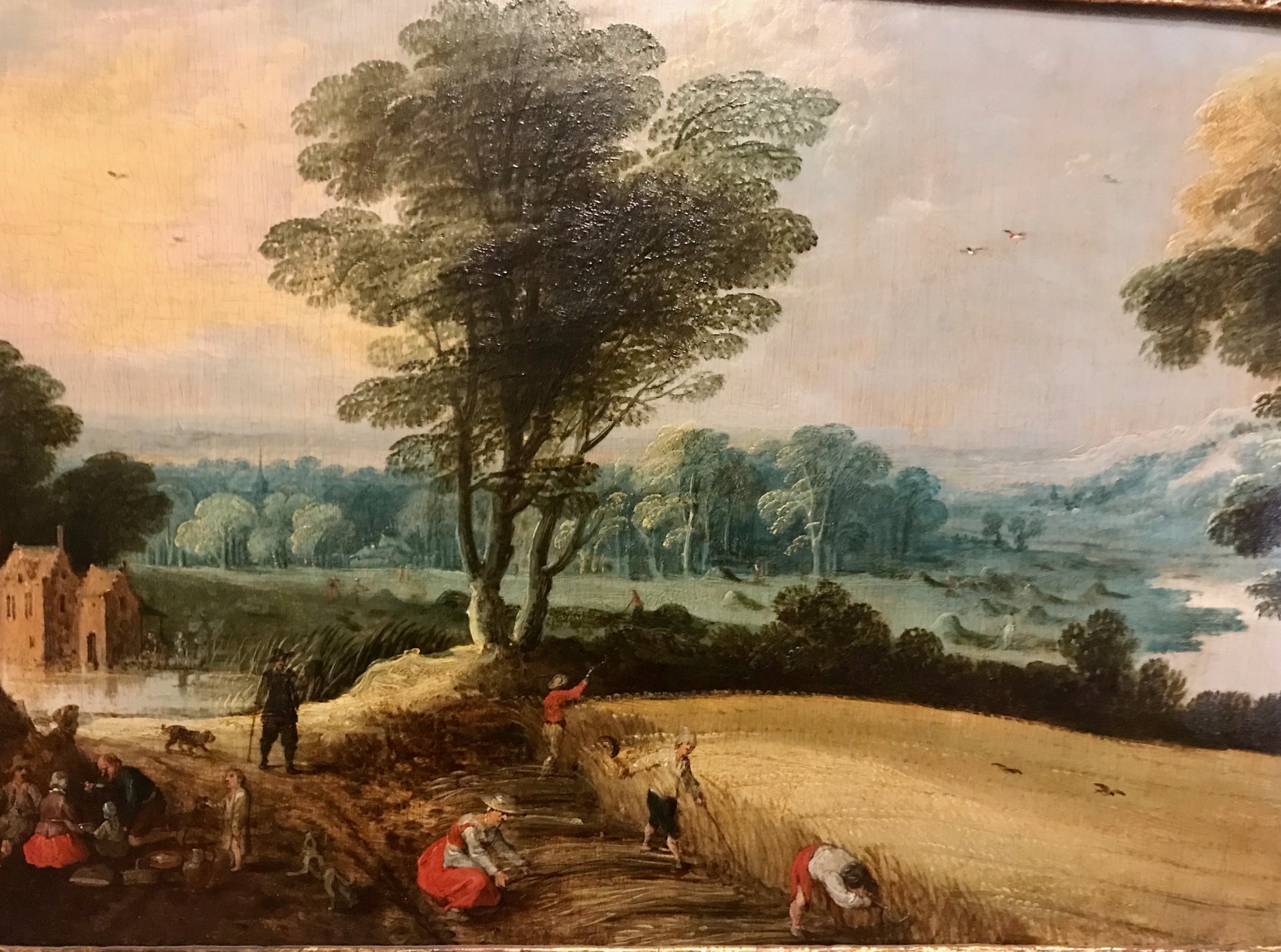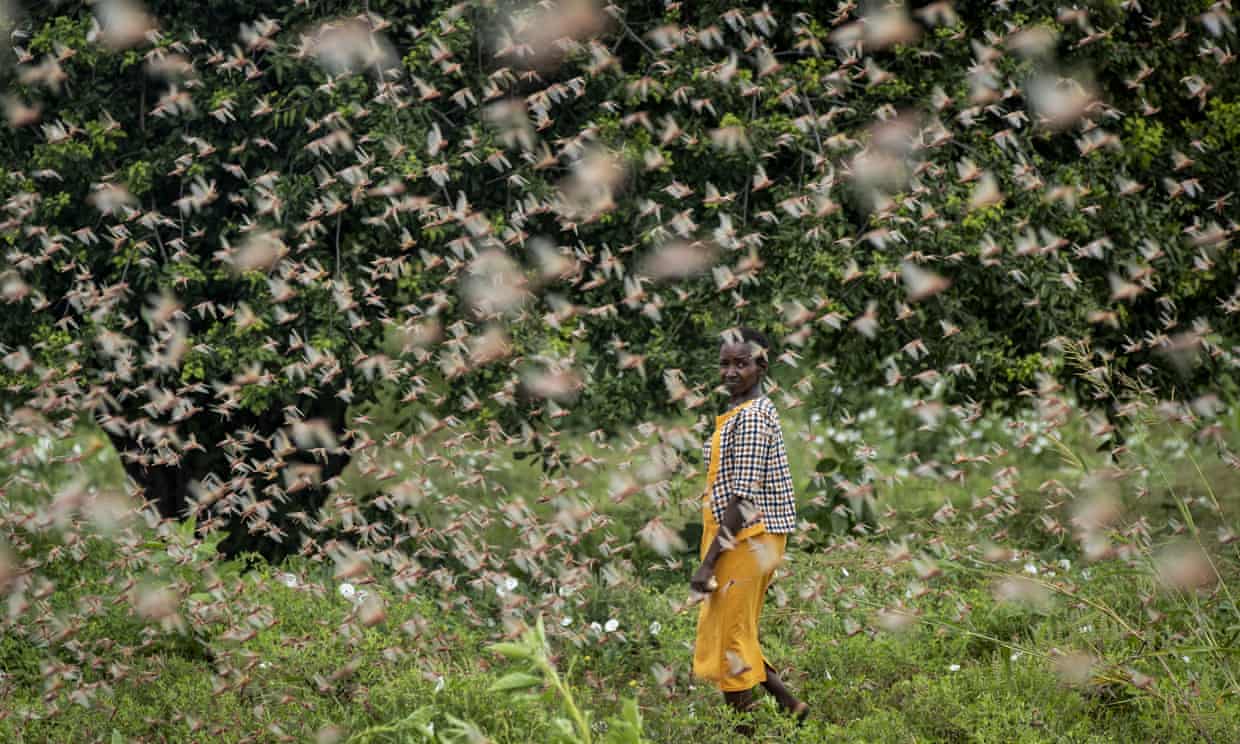
Châtenay-Malabry (FR - 92290), January 27, 2020
EFITA newsletter / 914 - European Federation for Information Technology
in Agriculture, Food and the Environment
To unsubscribe
this newsletter, please contact me directely: guy.waksman(a)laposte.net
if this
link Unsubscribe does not work.
Please note that
I changed the presentation of the links that are embedded in the name
of the web service.

To correspond with me (GW), please use this address: guy.waksman(a)laposte.net
To subscribe the efita newsletter (please ask your friends and colleagues
to test this link)
Efita
Newsletters subscription
Weekly newsletters about ICT in Agriculture in English and French
Both newsletters have around 14000 subscribers.
>>> Last weekly EFITA Newsletters in English (created in 1999)
Efita
Newsletters
>>> Last weekly AFIA Newsletters in French (created 20 years
ago in 1997)
Afia Newsletters
Around 15% of subscribers have a look on these newsletters. A rather normal
rate…
The archive for the last years are available on the AFIA web site.
The future as we saw it yesterday
This week, the UK is leaving the EU: what sadness! I hope that it will
come back soon! - GW
Statistics
about the previous issue of the efita newsletter dated January 20, 2020
Dernière
édition de "Du côté du web et de l'informatique
agricole 04 / 2020" du 23 janvier 2020
Statistiques
de l'édition de la semaine dernière de
la newsletter en français
S'abonner
à la newsletter en français
Washing machines and tractors freed America's children to receive an
education. Technological Progress Freed Kids from Hard Labor, by Chelsea
Follett
It’s summertime and across the United States, children are away from school.
The custom of long breaks in the school year dates to when most Americans
worked in agriculture and often needed their children’s help on the farm.
Of course, most children simply didn’t attend school, instead helping
with housework and grueling farm labor year-round. In 1820, for example,
primary school enrollment in the United States was just over 40 percent.
That percentage rapidly shot upward in the coming decades, reaching 100
percent by 1870. But even then, many children didn’t make it past elementary
school. In 1870, U.S. mean years of schooling stood at just 4.28. That
number has risen steadily ever since. What changed? Technology, for one
thing.
In his book Enlightenment Now, Harvard University professor Steven Pinker
recounts how technology helped get boys off the farm and into the classroom.
He quotes a tractor advertisement from 1921:
“By investing in a Case Tractor and Ground Detour Plow and Harrow outfit
now, your boy can get his schooling without interruption, and the Spring
work will not suffer by his absence. Keep the boy in school—and let a
Case Kerosene Tractor take his place in the field. You'll never regret
either investment.”
Alexandria LaunchLabs opens $100k agtech pitch competition – apply
by Jan 31!
Are you an agtech entrepreneur looking for a little capital to take your
idea to the next level? Alexandria LaunchLabs – AgTech is looking for
early-stage startups to compete in an expenses-paid, in-person pitch competition
in North Carolina’s Research Triangle Park. Details are still being finalized,
but the pitch competition will take place in May, Blake Stevens principal
at Alexandria Venture Investments and the new head of its agtech arm,
told AFN.
The winning contestant will receive a $75,000 cash price and a one-year
membership to LaunchLabs’ world-class facility with state-of-the-art amenities
and company-building support valued at $25,000. A panel of judges made
up of investors in the agtech venture community, strategic partners from
larger ag chem companies, and experienced entrepreneurs will choose the
lucky winner.
See
agfundernews.com
DSSAT 2020 International Training Program
The DSSAT Foundation, in collaboration with the University of Florida
and the International Fertilizer Development Center, will host an international
training program entitled DSSAT 2020 - "Assessing Crop Production,
Nutrient Management, Climatic Risk and Environmental Sustainability with
Simulation Models" from May 18 through May 23, 2020 at the University
of Georgia Campus in Griffin, Georgia, USA.
The overall goal of the workshop is to familiarize the workshop participants
with the Decision Support System for Agrotechnology Transfer (DSSAT v4.7);
the Cropping System Model (CSM) for the simulation of crop growth and
yield, soil and plant water, nutrient, and carbon dynamics; and the application
of models to real world problems, such as crop and resource management,
climate change and climate variability, carbon sequestration, food security,
biofuels, and environmental sustainability.
See the DSSAT Foundation web
See ugagriffincontinuinged.com
Contact: Gerrit HOOGENBOOM
E-mail: gerrit(a)ufl.edu
Good old days (?????):
Paysage avec champs de blé, attribué à Joos de Momper (1564-1635),
signalé par Pierre del Porto (musée Lambinet à Versailles)
Mél : pierre.delporto(a)gmail.com
Archives of our newsletters in French and English
Voir Afia
Voir Efita
|
|
Journal Agris on-line Papers in Economics and Informatics Vol. 11, No. 4 (2019) has been published
I inform you that the latest issue of the Agris on-line Papers in Economics and Informatics has been published.
The journal is backed by an international editorial board the Czech Society for Information Technologies in Agriculture (CSITA) and the European Federation for Information Technology in Agriculture, Food and the Environment (EFITA).
We hope that the articles find your interest and are looking forward to receiving your suggestions, and publication interests.
In this issue you can read valuable research papers. Thanks the authors for the interesting and useful articles.
>>> Journal articles of Vol. 11, No. 4 (2019)
>>> Papers in the Vol. 11, No. 4 (2019):
Gilson Augusto Helfer, Jorge Luís Victoria Barbosa, Bruno Guilherme Martini, Ronaldo Bastos dos Santos, Adilson Ben da Costa
Ubiquitous Computing in Precision Agriculture: A Systematic Review
Marie Janecká, Jaroslav Homolka, Pavla Hošková, Jiří Mach, Marek Dvořák
Evaluation of Economic Efficiency of Selected Branch in Animal Production in EU and CR
Erik Janšto, Peter Polakovič, Klára Hennyeyová, Ivana Slováková
Analysis of the Current Support of E-marketing Activities in Selected Enterprises of the Wine Sector in Slovakia
Ľubica Kubicová, Kristína Predanocyová, Zdenka Kádeková
Factors Affecting the Demand for Milk and Dairy Products in the Slovak Republic
Anthony Macedo, Sofia Gouveia, João Rebelo
Does Wine Quality Have a Bearing on Exports?
Judit Nagy, Zsófia Jámbor
Competitiveness in Dairy Trade – the Case of EU and the Visegrad Group Countries
Jakub Štěpán Novák, Jan Masner, Jiří Vaněk, Pavel Šimek, Klára Hennyeyová
User Experience and Usability in Agriculture – Selected Aspects for Design Systems
Vojtěch Novák, Michal Stočes, Eva Kánská, Jan Pavlík, Jan Jarolímek
Monitoring of Movement on the Farm Using WiFi Technology
Tamara Rudinskaya, Elena Kuzmenko
Investments, Technical Change and Efficiency: Empirical Evidence from Czech Food Processing
John Phillip Sabou, Petr Cihelka, Miloš Ulman, Dana Klimešová
Measuring the Similarities of Twitter Hashtags for Agriculture in the Czech Languagev
Contact: prof. Miroslav SVATOŠ (Editor in Chief)
E-mail: agrisonline(at)pef.czu.cz
Weather forecast in Belgium
Winfield launches Advanced Acre Prescription Program
Winfield’s new tool generates customised prescriptions and is launched in select markets in the 2020 growing season.
See futurefarming.com/
F&A Next connects start-ups and agrifood companies
For true innovation, many companies need fresh ideas from outside the business. “That is why start-ups in the agrifood sector are so important”, says Jeroen Leffelaar, managing Director Food & Agri Innovation at Rabobank and one of the founders of F&A Next.
See futurefarming.com/
mPowered aims to let farmers monetise their data
The mPowered technology platform aims to help farmers controll access to and profit from their own data.
See futurefarming.com/
DOT farm robot tested by U.S. farmers
A much-discussed autonomous farming unit, the DOT Power Platform, is set to be tested by a select group of North American farmers this coming spring.
See futurefarming.com/
CNH Industrial and start-up AppsforAgri launch FarmXtend
CNH Industrial and AppsforAgri introduce a new ‘IoT’ product portfolio called FarmXtend.
See futurefarming.com/
Samson Agro auto levelling for slurry dribble booms
Manure and slurry application equipment specialist Samson Agro is taking a lead from sprayer manufacturers by developing auto levelling and height control for slurry dribble booms.
See futurefarming.com/
|
|
Ag robotics startup Tortuga comes out of stealth with Tesla co-founder Tarpenning on board
“One thing I learned in the car business is how tough the environment is on the road and it’s a very similar problem in farming. A lot of the technology is just too delicate and fiddly; durability is a big one in the farm environment.”
See agfundernews.com
Zap! This UK startup just raised €6.5m to commit electricide on weeds
See agfundernews.com
Good old days (?????): Moisson (?) par Remzi Taşkıran - Turkish Art
FAO Director-General QU Dongyu today urged the private sector to work with the organization in its efforts to lift the world’s most vulnerable out of hunger and poverty (23 January 2020, Davos)
Speaking to UN TV at the 2020 World Economic Forum in Davos, the Director-General said more than 800 million people in the world did not have enough to eat and called for urgent action to achieve the UN’s Sustainable Development Goals.
He invited private companies to work with national governments, academics and civil society in supporting FAO’s new Hand-in-Hand initiative, which is designed to match donors with recipient countries to tackle poverty and accelerate development.
“We have to do it as quickly as possible because time is running out,” Qu said. “We have to build a better future for our planet.”
Qu said the most vulnerable people were located on small islands or landlocked countries, least developed countries and in conflict areas. He said densely populated countries such as India, Pakistan, Bangladesh and Nigeria accounted for 90 percent of the world’s poverty.
He said FAO wanted to work with farmers and member countries as well as the private sector to facilitate change and transform people’s livelihoods.
“We want to build a network in a collective way to help people who need it the most,” Qu said. “At the international level we have to work together.”
The Director-General said he had had fruitful talks with CEOs at Davos and stressed it was important to combine their interests with UN action that will make a difference through capacity building, technology transfers and other kinds of support.
See FAO
Court to probe Carrie Symonds’ influence on PM after cancellation of badger cull (cows or badgers... badgers! - A Johnson story - GW)
Boris Johnson’s partner and animal rights activist was briefed by Badger Trust weeks before the policy was changed.
See theguardian.com
Kenya suffers worst locust infestation in 70 years as millions of insects swarm farmland
UN urges immediate action as east African nations already experiencing devastating hunger see large areas of crops destroyed.
Hay que combatir el miedo al futuro, para Fernando VALLESPÍN (10 enero 2020)
Las historias sobre el temor al porvenir ejercen un gran poder de atracción. Pero no debemos quedarnos paralizados, sino reenfocar el mito del progreso. ¿Por qué no podemos creer en un futuro mejor?
Otra respuesta ya tiene más verosimilitud: el abandono de toda esperanza en que existan medios capaces de resolver todas estas amenazas. Lo que de verdad nos fallaría, por tanto, es la política, que habría perdido el control sobre nuestro destino. La emigración del poder hacia esferas libres de intervenciones políticas, es decir, la imposibilidad de que la globalización pueda llegar a ser domada por vías políticas, junto a la evidencia de un agotamiento sistémico del capitalismo sin que sea posible llegar a una alternativa viable es lo que nos sume en el estupor. O que toda intervención política eficaz pase por la renuncia a nuestro modo de vida o a la libertad misma. Como nos muestra el cambio climático, el gran problema es que lo que creemos necesario no sabemos cómo traducirlo después en medidas vinculantes para todos. Esto es lo que produce esta sensación de estar danzando sin red sobre el abismo.
Antes decíamos que las distopías eran algo así como la otra cara, la zona de sombra, de las utopías. Bien visto, parece más bien que son su consecuencia; por el hecho de perseguirlas acríticamente devinieron en su contrario. Esta es la idea que latía detrás de la Dialéctica de la Ilustración de Adorno y Horkheimer, escrita en medio de las convulsiones provocadas por la II Guerra Mundial y la contemplación de los totalitarismos. Por un lado, el nacional-fascista (utopía I); por otro, el bolchevique (utopía II), donde el ideal de emancipación del hombre derivó en su total sometimiento. Pero abarcaba también al capitalismo de masas estadounidense, donde la búsqueda de la supuesta autonomía y libertad individual (utopía III) originó sujetos banales sometidos a un consumo ciego y depredador de la naturaleza y manipulados por la industria mediática.
Moraleja: tomémonos en serio los mensajes distópicos, reenfoquemos el mito del progreso y no nos dejemos paralizar por el miedo. Pero, sobre todo, recuperemos la política. No esa política de salón a la que estamos acostumbrados, parroquial y de luces cortas. Lo que ahora necesitamos es una política épica de dimensión planetaria, previsora y eficaz. Recuerden, estamos a pocos minutos del apocalipsis.
Ver elpais.com/
|
|
False claims and miracles from the new vegan religion
See sustainablefoodtrust.org
Good old days (?????): A Surrey cornfield, by George Vicat Cole (1864)
 |
Three short jokes
“I had my patience tested. I’m negative.”
“Black Friday Special” for French Old timers !!!
“Stay at home and save 100%.”
- Are you involved in some dangerous sports?
- Well sometimes I disagree with my wife.
|
|
|
The distribution of this efita newsletter is sponsored by vitisphere.com
Please, contribute to the content of your efita newsletter, and advertise your events, new publications, new products and new project in this newsletter. Without your support, it will not survive!
Contact: Guy WAKSMAN
E-mail: guy.waksman(a)laposte.net
To read this newsletter on our web site
See Afia
The archives of this newsletter
See Afia
About the EFITA mailing list
You can use the efita moderated list (> 15000 subscribers) to announce any event / product / web site / joke (!) related to IT in agriculture, environment, food industry and rural areas.
If you want to subscribe a friend, please fill in his form.
If you do not wish to receive our messages, please fill in the following form...






